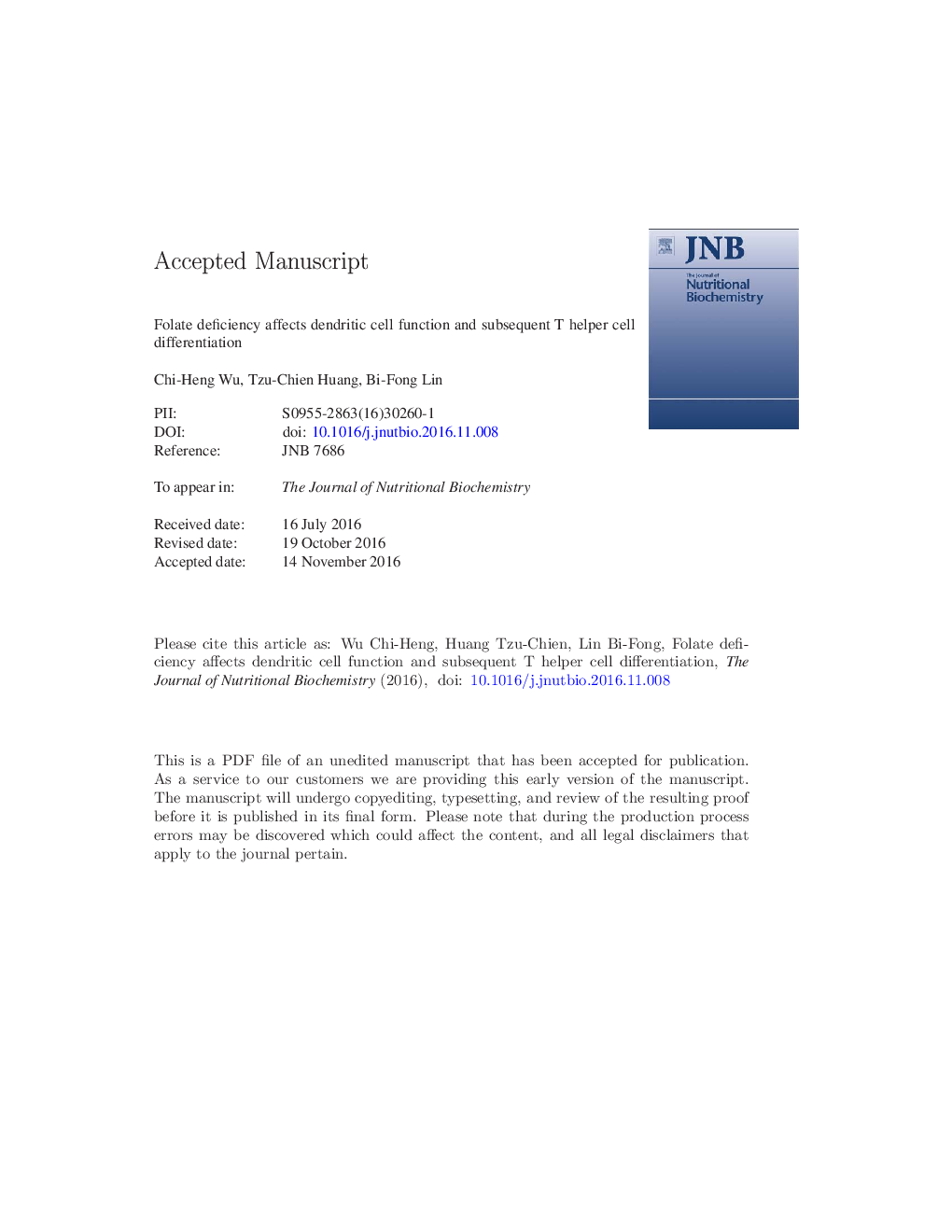| Article ID | Journal | Published Year | Pages | File Type |
|---|---|---|---|---|
| 5512946 | The Journal of Nutritional Biochemistry | 2017 | 39 Pages |
Abstract
Insufficient folate status may be related to the increasing prevalence of immune- or inflammation-related chronic diseases. To investigate the effects of folate on immune regulation, we examined the impact of folate deficiency (FD) on dendritic cell (DC) maturation and function and, thus, T helper (Th) cells differentiation. First, bone marrow-derived DCs (BMDCs) were generated from BALB/c mice bone marrow cells cultured in folate-containing (F-BMDCs) or folate-deficient (FD-BMDCs) medium. FD-BMDC displayed more immature phenotype including reduced levels of major histocompatibility complex class II (MHC II), co-stimulatory molecules and characteristic of higher endocytic activity. FD-BMDC produced less IL-12p70 and proinflammatory cytokines in response to lipopolysaccharide. This aberrant DC maturation due to FD resulted in reduced BMDC-induced Th cell activity and lower IL-2, IFNγ, IL-13 and IL-10 productions. Further in vivo study confirmed significantly lower IFNγ and IL-10 productions by T cells and showed higher splenic naïve Th and lower memory T, effector T and regulatory T cell (Treg) percentages in mice fed with the FD diet for 13 weeks. To investigate the role of DCs on T cell activity, splenic DCs (spDC) from FD mice were cocultured with Th cells. The FD spDC had lower MHC II and CD80 expressions and subsequently impaired DC-induced Th differentiation, shown as decreased cytokine productions. This study demonstrated that folate deficiency impaired DC functions and, thus, Th differentiation and responses, suggesting that folate plays a crucial role in maintaining Th cells homeostasis.
Related Topics
Life Sciences
Biochemistry, Genetics and Molecular Biology
Biochemistry
Authors
Chi-Heng Wu, Tzu-Chien Huang, Bi-Fong Lin,
